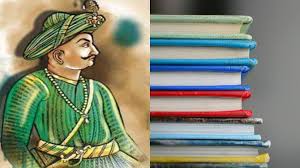No Tipu Sultan, no Anglo-Mysore wars in Class 8 NCERT book: Why the Centre says that’s okay

India’s education system has seen several changes recently. One of the most debated among them is the removal of Tipu Sultan and the Anglo-Mysore Wars from the Class 8 NCERT history book. This decision has raised important questions. Why was this done? What is the reason behind it? And how will it affect the way students learn Indian history?
Who Was Tipu Sultan?
Tipu Sultan, also known as the “Tiger of Mysore,” ruled the Kingdom of Mysore in the late 18th century. Alongside his father, Hyder Ali, he fought against British colonial expansion. Tipu played a key role in the four Anglo-Mysore Wars. His resistance to the British East India Company earned him a place in history as a symbol of anti-colonial struggle.
Tipu was also known for his military innovations, including the early use of rocket artillery. His leadership and strategic thinking made him one of the most formidable Indian rulers during that period.
What Did NCERT Change?
In 2022–23, the National Council of Educational Research and Training (NCERT) made several edits to school textbooks. As part of a syllabus reduction effort, it removed:
- Detailed content on Tipu Sultan’s rule
- Descriptions of the Anglo-Mysore Wars
- Tipu’s efforts to stop British advances
These changes affected the Class 8 history textbook titled “Our Pasts – III.”
Why Does the Government Defend This Move?
The Ministry of Education and NCERT provided three main reasons:
1. To Reduce Academic Load After COVID-19
The COVID-19 pandemic disrupted school learning across India. In response, NCERT began a rationalisation effort. They aimed to lighten textbooks so that students could manage their studies better. This was one of the driving forces behind removing some content.
2. To Avoid Repetition
Officials pointed out that students study Tipu Sultan again in Class 10 and Class 12. Because of this, they believed there was no need to include the same material in Class 8. The goal was to streamline content and avoid overlapping topics across different grades.
3. Based on Pedagogical Approach
NCERT explained that its history curriculum now focuses on themes and concepts, rather than specific individuals. For example, students still learn about resistance against British rule, even if Tipu Sultan is not mentioned in detail.
Why Are People Concerned?
Despite these explanations, many scholars and teachers are worried. Critics argue that removing Tipu Sultan at the middle school level takes away an important example of how Indians resisted British power.
For many, Tipu Sultan is not just a regional figure. His fight against the British had national significance. Excluding him from Class 8 could lead to a weaker understanding of India’s early resistance movements.
Some also say this move may reflect political motivations. Over the years, Tipu Sultan has become a controversial figure. Some leaders praise him for his bravery. Others criticize his religious policies. This divide has made Tipu Sultan a frequent subject of debate in Indian politics.
Why It Matters
How we teach history shapes how young minds see the world. Tipu Sultan’s removal is more than just a curriculum edit. It changes how students understand the British era and the people who stood against it.
If important figures are left out, students may grow up with an incomplete view of the past. School should be a place where young people learn to think critically. For that, they need access to full and balanced stories, not simplified or filtered ones.
The Bigger Picture
This debate also raises a key question: Should textbooks reflect political priorities or educational goals? Critics believe that curriculum decisions must come from deep academic discussion, not political pressure.
Tipu Sultan was not perfect. Like many historical figures, his legacy includes both achievements and controversy. But that is exactly why he should be taught. Students should learn to study history from all sides, ask questions, and form their own opinions.
Conclusion
The government believes that removing Tipu Sultan from Class 8 books is reasonable because students study him later. But critics feel that this decision reduces the richness and depth of India’s historical narrative.
History is not just about memorising dates or names. It’s about understanding struggles, sacrifices, and changes. If students never learn about people like Tipu Sultan at an early age, they may miss an important chapter of India’s fight for freedom.
This is why the debate continues — and why the choices we make in textbooks will always matter.






